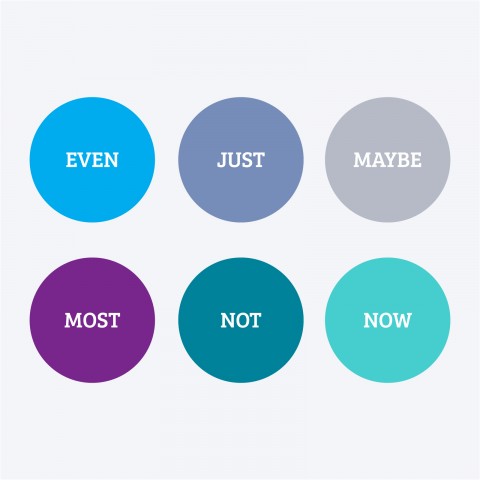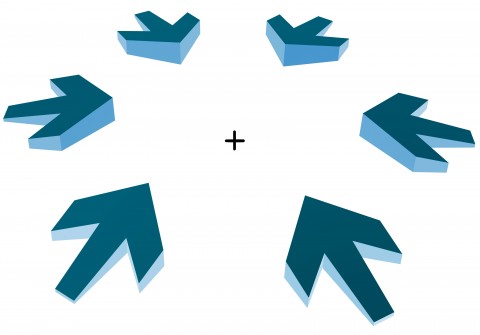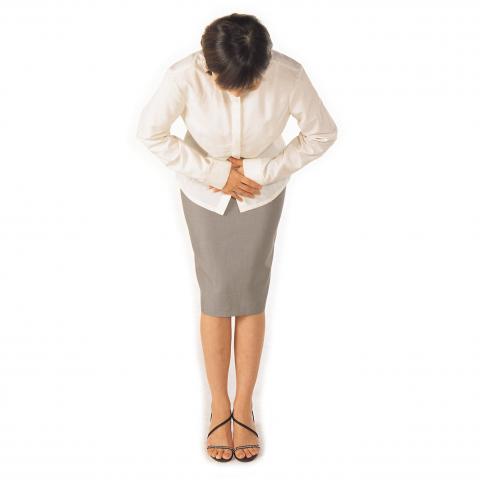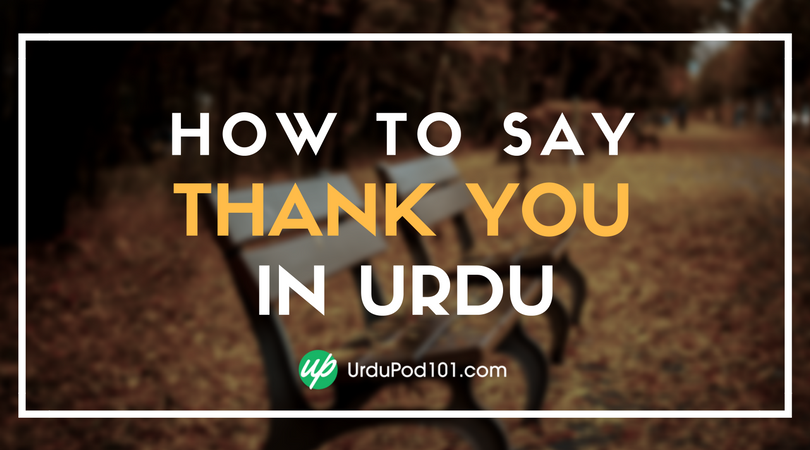
Why learn about the adverb in Urdu?
To expect someone to write or speak without allowing him to use adverbs in his writing is just like asking an astronaut to embark on a space journey without having his oxygen supply on. Adverbs are the life-line of any writer when it comes to the art portraying how something happened.
Adverbs are economical in that they allow people to express more detail and make clearer statements. Thus, knowing the most important adverbs in Urdu will remove many linguistic constraints from your speech and writing as you learn the language.

In Pakistan, you can’t think of becoming a good conversationalist without using Urdu adverbs from time to time. Adverbs will act as the mouthwatering garnish on the main course of your speech. UrduPod101.com will help you achieve this mandatory Urdu language skill to ensure that you may benefit from adverbs in Urdu language learning for vivid and clear conversations.
 Table of Contents
Table of Contents- What is an Adverb in Urdu?
- Our List of the 100+ Most Useful Urdu Adverbs
- Adverbs of Time in Urdu
- Adverbs of Frequency in Urdu
- Adverbs of Place in Urdu
- Adverbs of Manner in Urdu
- Adverbs of Degree in Urdu
- Conclusion
1. What is an Adverb in Urdu?
Before jumping into our list of Urdu adverbs, it’s important that you know the adverb definition in Urdu. Thus, in the following sections, we’ll go over the basics for you with examples.
1- Defining the Urdu Adverb
In Urdu, an adverb is called متعلق فعل (mutaliq fail).
The adverb in Urdu grammar modifies a verb, adjective, or another adverb in a sentence. The addition or subtraction of this single word will make a great impact on the meaning of the sentence. It will cause some sort of change in the verb, adjective, or adverb it relates to.
Find below a few sentences illustrating some varying forms and functions of adverbs in the Urdu language.
1. وہ تیز دوڑتا ہے۔
woh taiz dorta hai.
“He runs fast.”
In this sentence, the word تیز (taiz) modifies the meaning of the verb دوڑتا ہے (dorta hai). Hence, it acts as an adverb in the sentence.
2. وہ بہت تیز دوڑتا ہے۔
woh bohat taiz dorta hai.
“He runs very fast.”
Here, the word بہت (bohat) modifies the meaning of the adverb تیز (taiz). Therefore, it’s also an adverb.
3. وہ بہت میٹھا آم کھاتا ہے۔
woh bohat meetha aam khata hai.
“He eats a very sweet mango.”In the sentence above, the word بہت (bohat) modifies the adjective میٹھا (meetha). Thus, here it also functions as an adverb in Urdu.

2- Syntactic Placement of Adverbs in Urdu
While learning where to place adverbs in Urdu sentences isn’t very easy for beginners, understanding the basics of Urdu syntax can give you a good foundation.
Till now, you’ve learned that in Urdu syntax, the verb usually goes at the end of a sentence. Keeping this in mind, you can make your job easier by remembering a simple rule: an adverb, generally, precedes a verb, adverb, or adjective in Urdu sentences.
You may have noticed this tendency in the Urdu adverb examples you saw earlier.
2. Our List of the 100+ Most Useful Urdu Adverbs

Having learned the basic concepts about the adverb in Urdu, let’s proceed to our list of adverbs with Urdu meanings. To help your comprehension, we’ve divided the Urdu adverbs into a few categories based on their functions. Let’s begin with the adverbs of time in Urdu.
3. Adverbs of Time in Urdu

An adverb of time in Urdu informs someone of how often or how long an action took place or happened. Take a look at this Urdu adverbs list:
1. تب
tab
“Then”
2. کب
kab
“When”
3. جب
jab
“When”
4. اس وقت
iss waqt
“At this time”
5. اس وقت
uss waqt
“At that time”
6. کس وقت
kis waqt
“At what time”
7. جس وقت
jis waqt
“At the time that”
8. جلد
jald
“Soon”
9. دیر سے
dair say
“Late”
10. آج
aaj
“Today”
11. (کل (آنے والا
kal (aanay wala)
“Tomorrow”
12. (کل (گزرا ہوا
kal (guzra hua)
“Yesterday”
13. پہلے
pehaly
“Before”
14. بعد میں
baad mein
“After”
15. اب
ab
“Now”
16. گذشتہ
guzishta
“Previously”
17. حالیہ
haalia
“Currently”
18. پہلا
pehla
“First”
19. آخری
aakhri
“Last”
20. پچھلے سال
pichlay saal
“Last year”
1- Use in Sentences
میں کل جاپان جاؤں گا۔
mei kal Japan jaon ga.
“I will go to Japan tomorrow.”
میں کل یونیورسٹی گیا۔
mei kal university gaya.
“I went to the university yesterday.”
میں نے اپنا کام پہلے ہی مکمل کر لیا تھا۔
mei nay apna kaam pehlay hi mukammal kar liya tha.
“I had completed my work earlier.”
4. Adverbs of Frequency in Urdu

The adverb of frequency in Urdu is a word that tells us how frequently something takes place or happens.
Below is a list of some frequently used Urdu adverbs of frequency.
21. گاہے بگاہے
gahay bagahay
“Occasionally”
22. وقتاً فوقتاً
waqtan fawaqtan
“Sometimes”
23. شاید ہی کبھی
sahayad hi kabhi
“Hardly ever”
24. اکثر
aksar
“Often”
25. ہمیشہ
hamesha
“Always”
26. کبھی کبھار
kabhi kabhar
“Seldom”
27. شاذونادر
shaz-o-nadir
“Rarely”
28. روزانہ
rozana
“Daily”
29. بالعموم
bil-amoom
“Usually”
30. حسب معمول
hasb-e-mamool
“Normally”
31. کبھی نہیں
kabhi nahi
“Never”
32. ہر وقت
har waqt
“All the time”
33. سالانہ
salana
“Annually”
34. ہفتہ وار
hafta-war
“Weekly”
35. گھنٹہ وار
ghanta-war
“Hourly”
36. متواتر
matwatar
“Frequently”
37. عام طور پر
aam tor per
“Generally”
38. ماہانہ
mahana
“Monthly”
39. کبھی کبھی
kabhi kabhi
“Once in a while”
1- Use in Sentences
وہ روزانہ بس پر سفر کرتا ہے۔
woh rozana bus per safar karta hai.
“He commutes by bus daily.”
وہ اکثر ورزش کرتی ہے۔
woh aksar warzish karti hai.
“She exercises often.”
اسے گھنٹہ وار ادائیگی کی جاتی تھی۔
ussay ghanta-war adaigi ki jati thi.
“He was paid hourly.”
وہ باقاعدگی سے سبق یاد کرتا ہے۔
woh baqaidgi say sabaq yaad karta hai.
“He learns his lesson regularly.”
وہ کبھی بھی ہار نہیں مانتا۔
woh kabhi bhi haar nahi manta.
“He never accepts defeat.”
وہ کبھی کبھار بات کرتا ہے۔
woh kabhi kabhar baat karta hai.
“He seldom talks.”
5. Adverbs of Place in Urdu

An adverb of place in Urdu gives information about the location where an action took place. It may also give information about distance. Below are some commonly used adverbs of place in the Urdu language.
40. کہیں بھی
kaheen bhi
“Anywhere”
41. کہیں اور
kaheen aur
“Elsewhere”
42. اندرونی
androoni
“Indoor”
43. تلے
talay
“Below”
44. عقب میں
aqab mei
“Behind”
45. بہت قریب
bohat qareeb
“Nearby”
46. ارد گرد
ird-gird
“Around”
47. یہاں
yahan
“Here”
48. وہاں
wahan
“There”
49. ہر جگہ
har jagha
“Everywhere”
50. اندر
ander
“Inside”
51. باہر
bahir
“Outside”
52. اوپر
ooper
“Up”
53. نیچے
neechay
“Down”
54. بالائی منزل
balai manzil
“Upstairs”
55. نیچے کی منزل
neechay ki manzil
“Downstairs”
56. دور
dur
“Away”
57. بیرون ملک
bairoon-e-mulk
“Abroad”
58. گھر
ghar
“Home”
59. کی جانب
ki janib
“Towards”
1- Use in Sentences
میرے گھر کے قریب ایک سکول ہے۔
meray ghar kay qareeb aik school hai.
“Nearby my house, there is a school.”
اس کا گھر شہر سے باہر ہے۔
uss ka ghar shehar say bahir hai.
“His house is situated outside the city.”
وہ بالائی منزل پر رہتی ہے۔
woh balai manzil per rehti hai.
“She lives upstairs.”
میرا فلیٹ ہوٹل کے اوپر واقع ہے۔
mera flat hotel kay ooper waqia hai.
“My flat lies above the hotel.”
ہوائی جہاز آہستہ سے اوپر بڑھا۔
hawai jahaz aahista say ooper barha
“The plane moved upward slowly.”
6. Adverbs of Manner in Urdu

An Urdu adverb of manner is a word which provides us with information about how and in what manner the action was executed. To give you a deeper understanding, we’ve arranged a list of some widely used adverbs of manner in the Urdu language.
60. ایسے
aisay
“This way”
61. ویسے
waisay
“In the same way”
62. زور سے
zor say
“Forcefully”
63. بخوشی
bakhushi
“Gladly”
64. بالخصوص
bilkhasoos
“Specifically”
65. مضطربانہ
muztarbana
“Frantically”
66. ڈرامائی انداز سے
dramai andaz say
“Dramatically”
67. جوش و خروش سے
josh o kharosh say
“Enthusiastically”
68. آہستہ آہستہ
aahista aahista
“Slowly”
69. تیزی سے
taizi say
“Quickly”
70. احتیاط سے
ehtiat say
“Carefully”
71. خاموشی سے
khamoshi say
“Quietly”
72. خوشی سے
khushi say
“Happily”
73. آسانی سے
aasani say
“Easily”
74. حقیقت میں
haqeeqat mein
“Really”
75. حقیقی معنی میں
haqeeqi mani mein
“Literally”
76. سادگی سے
saadgi say
“Simply”
77. بری طرح
buri tarha
“Badly”
78. اچھا
acha
“Well”
79. نرمی سے
narmi say
“Gently”
80. خودبخود
Khud-ba-khud
“Automatically”
1- Use in Sentences
وہ غصے سے چلائی۔
woh ghussay say chillai.
“She screamed angrily.”
گاڑی احتیاط سے چلاؤ۔
garri ehtiat say chalao.
“Drive carefully.”
ہمیں آسانی سے ٹکٹیں مل گئیں۔
hamain aasani say ticktain mil gaien.
“We got the tickets easily.”
وہ جلدی سے باہر گیا۔
woh jaldi say bahir gaya.
“He went out hurriedly.”
اس نے معصومیت سے جواب دیا۔
uss nay masoomiat say jawab diya.
“He replied innocently.”
یہ پنکھا خودبخود چلتا ہے۔
Yeh pankha khud-ba-khud chalta hai.
This fan runs automatically.
7. Adverbs of Degree in Urdu

Adverbs of degree are those which give information on the degree or intensity of an action. Have a critical look at our Urdu adverbs list below.
81. تقریباً
taqreeban
“Almost”
82. حتمی
hatmi
“Absolutely”
83. مکمل طور پر
mukamal tor per
“Completely”
84. قطعاً
qat-ann
“Decidedly”
85. گہرائی میں
gehrai mei
“Deeply”
86. کافی
kaafi
“Enough”
87. بے پناہ
be panah
“Enormously”
88. تمام تر
tamam tar
“Entirely”
89. جائز طور پر
jaiz tor per
“Fairly”
90. کھلم کھلا
khulam khula
“Openly”
91. تھوڑا
thora
“Less”
92. کسی حد تک
kisi had tak
“Somewhat”
93. مضبوطی سے
mazbooti say
“Strongly”
94. درحقیقت
dar haqeeqat
“Indeed”
95. کم
kam
“Little”
96. بہت
bohat
“Very”
97. قدرے
qadray
“Rather”
98. بالکل
bilkul
“Quite”
99. یوں
yun
“Like this”
100. بھی
bhi
“Too”
1- Use in Sentences
میرا کام تقریباً مکمل ہو چکا ہے۔
mera kaam taqreeban mukammal ho chukka hai.
“My job is almost completed.”
وہ مکمل طور پر تباہ ہو چکا ہے۔
woh mukammal tor per tabah ho chuka hai.
“He has been destroyed completely.”
میں اس سے گہرا متاثر ہوا۔
mei uss say gehra mutasir hua.
“I was deeply influenced by him.”
وہ کافی کما لیتا ہے۔
woh kaafi kama leta hai.
“He earns enough.”
میں نے اس کو مضبوطی سے پکڑا۔
mei nay uss ko mazbooti say pakra.
“I held him strongly.”
8. Conclusion
This article has taught you all the basics about Urdu adverbs. It has also removed any misconceptions you may have had about adverbs and provided you with useful examples of how to use them. Is something lacking still? Is there something else that you need to learn about adverbs in Urdu? Feel free to reach out in the comments with questions or feedback for us!

In addition, UrduPod101.com provides numerous Urdu learning resources to enhance your Urdu vocabulary and grammar! In this way, you’ll be able to make an Urdu adverbs list of your own to surprise native Urdu speakers with your language skills in Pakistan.
Very Happy Urdu Learning!










